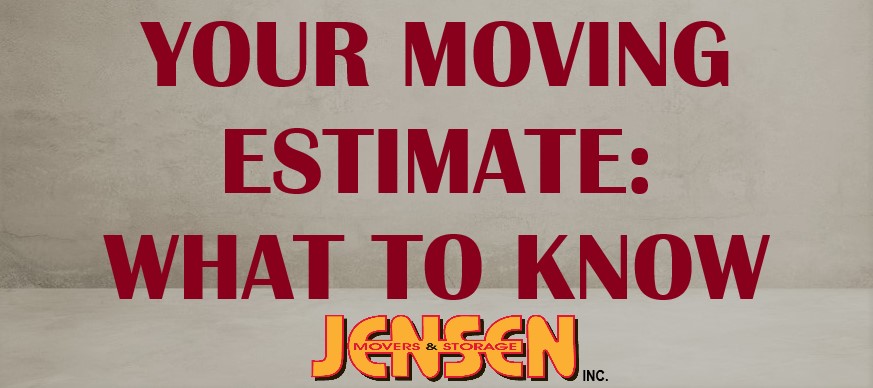Your Moving Estimate: What to Know

You made the call and your moving estimate is scheduled. Congratulations! You are one step closer to your new home. Why are in-home estimates so important in the moving industry? A visual estimate not only provides you the best approximation on your moving costs, but also the peace of mind that you’re choosing the right company. The estimate also ensures proper preparation for your mover.
Your estimate will take about 30 – 45 minutes. By law, moving estimates must be free of charge. During the appointment, your estimator will guide you throughout your current home, offer suggestions and teach you about the moving process. By the end of your appointment, you should have an honest written estimate, a better understanding of how relocating works and the confidence that you’re choosing the right mover.
Before your estimator arrives, you’ll want to know a few things for accurate pricing. We’ll also include helpful tips! Let’s get started.
Moving Dates

Estimates are only valid for a few months, so have an idea of when you’re moving. A general rule of thumb is to schedule your move one month in advance. Moving companies consider their peak season between May – September. The end of the month also books quickly. Keep this in mind as your settlement dates and/or lease dates are established.
MOVING TIP: If you have a same day settlement (for example - a 9:00AM settlement at your current home and a 12:00PM settlement at your new one), your shipment might need to be held overnight. This is because your home will need to be emptied for walkthrough. This is a common service most movers provide.
Extra Services

Understand your timing, moving needs and budget. See if your moving company offers extra services and, if your budget allows, take advantage of them. You might be surprised to discover the services your mover offers, such as disposal, storage and rigging.
Hiring movers to pack up your home will make your life easier. You may also want the movers to just handle the “tricky” items, such as your mirrors, paintings and lamps. During your in-home estimate, show the estimator any items that require special attention. For example, pool tables, pianos, exercise machines, grandfather clocks and antiques require extra care.
What’s Going - What’s Staying

Before your estimate appointment, know what items are going with you and what items are not. Point out these items to your estimator to ensure accuracy.
You’ll know exactly what’s going to stay with the house based on your sale agreement. Make sure to point out any appliances that you’re taking. Also note your donation items. If your charity group doesn’t offer pickup, your mover can offer this service as an extra delivery.
Plan your garage sale as early as possible and preferably before the estimate. Selling furniture online can be difficult and auction houses may have less payout than you think. If you haven’t sold certain pieces yet, explain to your estimator that you plan on selling them, but to add it to your moving estimate for now. Doing so will keep you prepared mentally and financially if your pieces don’t sell on time.
ESTIMATING TIP: Color coding will keep you organized. If there are a lot of items you won’t be taking with you, tag them with different colored stickers. For example: all red sticker items are being moved, blue sticker items aren’t going, green sticker items need pricing on disposal.
The Destination

Your estimator will record furniture and note the layout of your current home. If you know where you’re moving to, inform the estimator of any obstacles that may pose concern.
These are common obstacles movers face: low hanging wires, driveways & parking surfaces, long walks, freight elevators, multiple or spiral staircases and narrow hallways.
MOVING TIP: If you’re able, go to the destination and take room measurements. See if your furniture will fit in the new home and have a backup plan. For example, your 8’ executive desk might not fit in a historic colonial or small city apartment.
Miscellaneous Questions
The estimator should be knowledgeable about the company they represent and stand by the quality of service they provide. Repeat the top five questions to ask a moving company and make sure they’re consistent with their answers.
Ask how long your estimator has been with the business and if they have been on moving jobs. An experienced estimator will provide a more accurate estimate.
